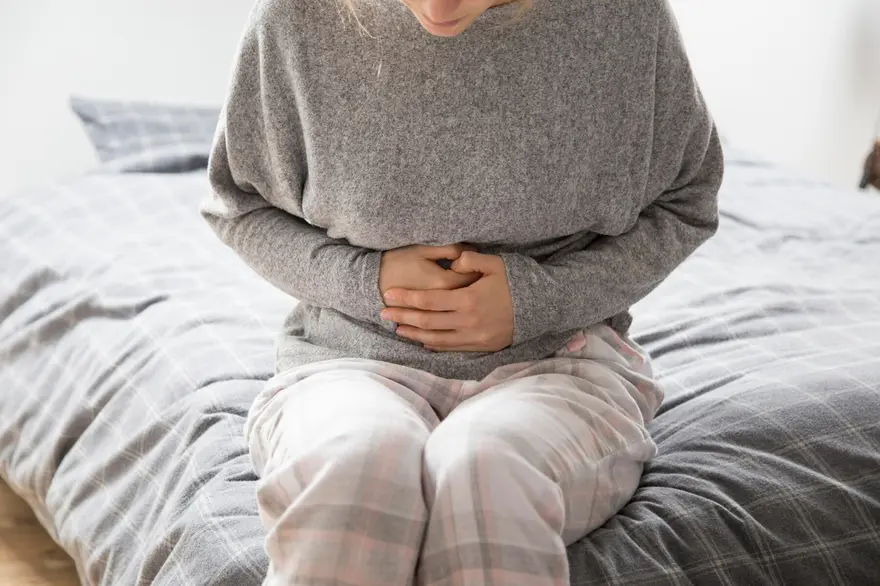Preventive Healthcare
Orchitis: Causes, Symptoms, and Treatment of Testicular Inflammation
43 Views
0

What is orchitis?
Orchitis refers to the inflammation of one or both testicles (also called testes). The testes are oval-shaped male reproductive glands located in the scrotum that produce sperm and testosterone. Orchitis often occurs along with inflammation of the epididymis, the coiled tube behind each testicle that stores and carries sperm. When both the testicle and epididymis are inflamed, the condition is called epididymo-orchitis.
What is epididymo-orchitis?
Epididymo-orchitis is the inflammation of both the epididymis and the testicle. It is more common than isolated orchitis. The epididymis is a tube located at the back of each testicle that stores and transports sperm. When an infection spreads from the epididymis to the testicle, it results in epididymo-orchitis.
How common is orchitis?
Orchitis is not a very common condition. However, about 1 in 3 males who get mumps after puberty develop orchitis. Orchitis can occur in males of any age, but it is more frequently seen in:
- Adolescents and adults who did not receive the mumps vaccine
- Sexually active men due to sexually transmitted infections (STIs)
What causes orchitis?
Orchitis causes range from viral to bacterial infections.
- Viral orchitis causes often include the mumps virus, a primary contributor, but other viruses—like measles, influenza, Epstein-Barr, varicella-zoster, and coxsackievirus—can also lead to orchitis.
- Bacterial orchitis causes usually result from infections spreading from the urinary tract or epididymis. Common bacteria responsible include E. coli and Staphylococcus species, and sexually transmitted infections like gonorrhoea and chlamydia are also common culprits.
Both viral and bacterial causes can trigger pain and inflammation in the testes, so proper diagnosis is essential to determine the underlying orchitis cause and start appropriate treatment.
Who is at risk for orchitis?
Certain factors can increase the chances of developing orchitis:
- Not being vaccinated against mumps
- Engaging in high-risk sexual behaviour like unprotected sex
- Having structural abnormalities of the urinary tract
- Undergoing medical procedures involving the urinary tract
- Weakened immune system due to conditions like HIV
What are the symptoms of orchitis?
Orchitis symptoms usually develop suddenly and can include:
- Swelling, tenderness, and redness of one or both testicles
- Pain in the testicles that may spread to the groin
- Painful urination or ejaculation
- Fever and chills
- Nausea and vomiting
- Discharge from the penis
How is orchitis diagnosed?
To diagnose orchitis, your doctor will start by reviewing your medical history and discussing any symptoms, including testicular pain, swelling, or fever. A physical exam will be conducted to check for swelling, tenderness, or other abnormalities in the testicles.
Diagnostic tests are key to identifying the infection causing orchitis: urine and blood tests help detect the bacterial or viral presence, while STI screening using urethral swabs can identify sexually transmitted infections like gonorrhoea or chlamydia. An ultrasound may also be recommended to visualise the testicles, confirm inflammation, and rule out other conditions, ensuring a precise and targeted treatment approach.
How is orchitis managed or treated?
Orchitis treatment and management are tailored to the underlying cause, whether viral or bacterial.
- For viral orchitis, the focus is on relieving symptoms as the infection resolves naturally. Recommended methods include rest, applying ice packs, scrotal elevation, and using over-the-counter pain relievers to reduce discomfort and swelling.
- In cases of bacterial orchitis, antibiotics are essential to eliminate the infection; completing the full course is crucial for effective recovery. If an STI is the cause, treating sexual partners is also recommended to prevent reinfection.
Follow-up appointments may be scheduled to monitor recovery and ensure no complications develop.
How can we treat orchitis at home?
Some home care measures can help relieve orchitis symptoms and support healing:
- Rest in bed and limit physical activity
- Wear an athletic supporter to lift the scrotum and ease discomfort
- Apply cold packs to the scrotum to reduce pain and swelling
- Take over-the-counter pain relievers like ibuprofen or acetaminophen
- Soak in a warm bath to relieve pain
- Avoid lifting heavy objects
How can we prevent orchitis?
Preventing orchitis involves lowering your risk of infections:
- Get vaccinated against mumps if you did not receive the vaccine as a child
- Practice safe sex by using condoms and limiting sexual partners
- Avoid holding in urine for long periods
- Practice good hygiene by washing the genital area regularly
What are the complications of orchitis?
Untreated orchitis can lead to several complications.
- One common issue is testicular atrophy, or shrinkage of the testicle, which can be permanent and affect testicular function.
- Scrotal abscesses may form, requiring drainage or even surgery if left untreated.
- Infertility is another significant concern, as the infection can impair sperm production, potentially impacting reproductive health.
- Additionally, orchitis causes chronic epididymitis, a condition characterised by persistent inflammation and pain in the epididymis, leading to ongoing discomfort.
Timely orchitis diagnosis and appropriate treatment are essential to reduce the risk of these complications and preserve overall testicular health.
What is the outlook for people with orchitis?
With appropriate treatment, most people with orchitis recover fully within a few weeks. However, follow-up care is important to ensure the infection has cleared and check for any long-term impact on fertility.
When to see a doctor?
Consult a doctor immediately if you have any orchitis symptoms like:
- Sudden testicle pain and swelling
- Fever over 100°F (37.8°C)
- Pain during urination or ejaculation
- Blood in the semen
Conclusion
Orchitis is a treatable condition, but it can lead to serious complications if left unchecked. Understanding the causes, symptoms and treatment options empowers you to take charge of your testicular health. If you suspect orchitis, don't hesitate to consult a doctor for an accurate orchitis diagnosis and appropriate care.
At Metropolis Healthcare, we are committed to providing reliable diagnostic services to help you identify infections early and get the right orchitis treatment. Our team of expert technicians offer convenient at-home blood sample collection. Your samples are analysed at our state-of-the-art labs, with reports delivered online for easy access. With a focus on quality and patient-centric service, Metropolis is your trusted partner in managing orchitis and other health concerns.
 Home Visit
Home Visit Upload
Upload













1701259759.webp)









 WhatsApp
WhatsApp